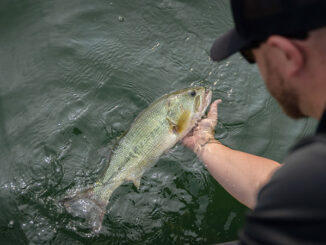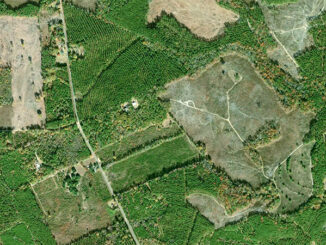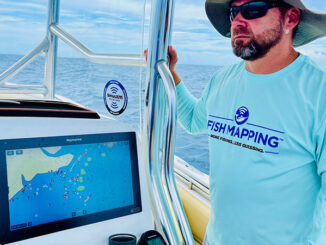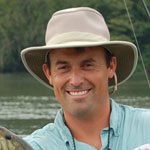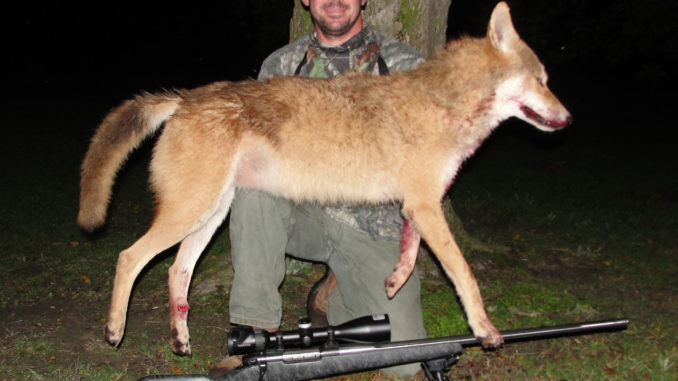
From pestering livestock and domestic animals to preying on juvenile deer and small mammals, coyotes are becoming a major nuisance to both native wildlife and domestic animals.
More than 20 years ago, a coyote sighting was a rarity along the eastern seaboard. Historically, coyotes were only found in the Midwest, but because of the elimination of natural predators and landscape changes, coyotes have migrated to the Southeast and east coast with a vengeance. Today, they are well-established statewide in both Carolinas, with no higher-level predators to control their population growth.
Coyotes are extremely adaptable and can live in any habitat, including neighborhoods dominated by people and the deep wilderness. They are opportunistic feeders capable of eating just about anything, from small mammals, reptiles, fruits, carrion to even dumpster cuisine.
Coyotes do not pose a direct danger to humans; however, they can have a major impact on the natural environment and human interests. They will prey on small-game species, juvenile deer and small, domestic animals and will directly compete with larger game species for food.
Coyotes are quite intelligent and can be tough to control. In order to succeed in coyote control, hunters and trappers should be educated on coyote biology. Trapping itself can be frustrating, but there are some dangers everyone needs to become aware of when targeting these four-legged pests.
While the internet and libraries are full of literature, a hands-on, demonstration and educational seminar is just what the doctor ordered. On Jan. 13, Clemson University’s Cooperative Extension and S.C. Department of Natural Resources is holding a coyote control workshop in Florence, S.C. to educate the public on effective trapping techniques and coyote biology. For more information, contact Susan Guynn at sguynn@clemson.edu or call 864-656-0606.
In North Carolina, the N.C. Trappers Association will hold an advanced trapping workshop on May 15-17 at Millstone 4-H Camp near Ellerbe in Richmond County. For more information about this opportunity, contact Todd Menke of the N.C. Trappers Association at minkster@netzero.net.
For more information about coyote control in your state, contact the N.C. Wildlife Resources Commission at 800-662-7137, the S.C. Department of Natural Resources at 803-734-3609, or a local wildlife enforcement officer.

